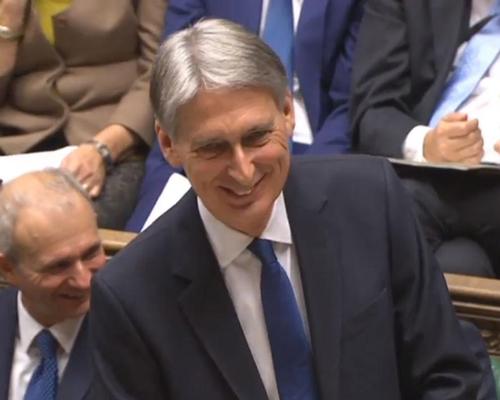08 Mar 2017
Chancellor's Budget fails to tackle inactivity crisis, says ukactive
BY Deven Pamben

Chancellor Philip Hammond’s Spring Budget was a “missed opportunity” for the government to demonstrate its commitment to tackling the nation’s physical inactivity crisis, ukactive executive director Steven Ward has said.
Hammond today (Wednesday 8 March) confirmed a shake-up of vocational and technical education in England, outlining a Post-16 Skills Plan that specifies 15 core areas of employment which the framework will deliver.
Sport and physical activity was not one of the 15 areas, despite equivalent sized industries such as hairdressing, catering and hospitality being named. The reforms are based on recommendations from a 2016 report into technical education by an independent panel, chaired by Lord Sainsbury.
A total of £100m (US$121.5m, €115.1m) will be allocated in 2019/20 for the first technical level qualifications and this will rise to more than £500m (US$607.5m, €575.9m) by 2022.
During his Budget speech, Hammond said investing in education and skills would help tackle the productivity gap and that a recurring concern was whether young people were being taught relevant attributes needed.
In response to the announcement, Ward said: “Today’s Budget represents a missed opportunity for the government to deliver clear action on its commitment to tackle Britain’s physical inactivity crisis and demonstrates that when it comes to employment issues, our sector is not getting its voice heard nor its interests served. This has to change.
“The glaring omission of sport and physical activity from the 15 career pathways under the new Post-16 Skills Plan drastically underestimates the importance of our sector to the future of UK PLC.
“Sporting Future, the Government’s strategy for sport and physical activity, outlined the need for a highly-skilled physical activity workforce to deliver its vision of a more active nation. But by failing to provide a clear career pathway into the physical activity sector for young people, the government risks weakening the workforce at a time when it has never been needed more.
“Tackling inactivity has been put firmly on the health and sporting policy agenda; but this progress could be fatally undermined unless we see equal levels of support and conviction across education and skills.”
Tara Dillon, CIMSPA chief executive, welcomed the Chancellor's investment commitment but added: “However, it is critical that the sport and physical activity sector is recognised as an independent pathway within the framework outlined by Lord Sainsbury’s panel. CIMSPA will continue to work with colleagues in the Department for Education to ensure the sector is appropriately represented.”
The physical activity and sport sector employs more than 500,000 people.
Close Window